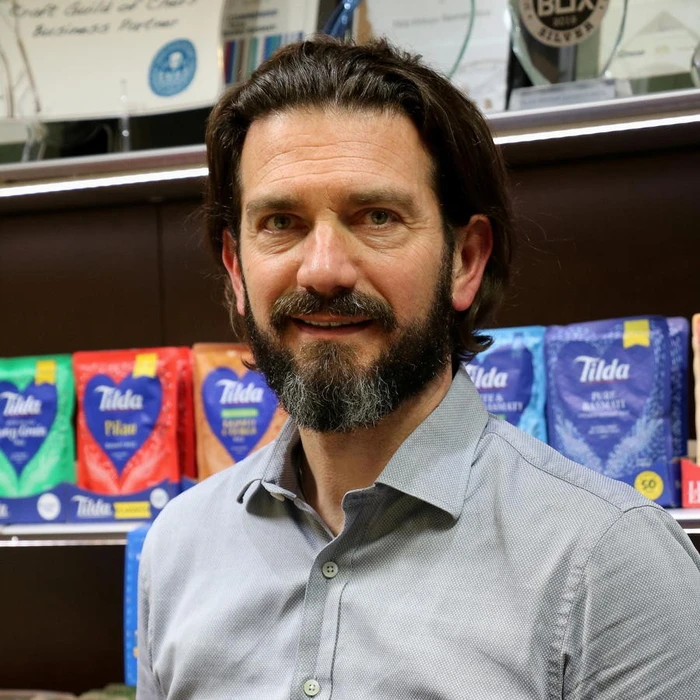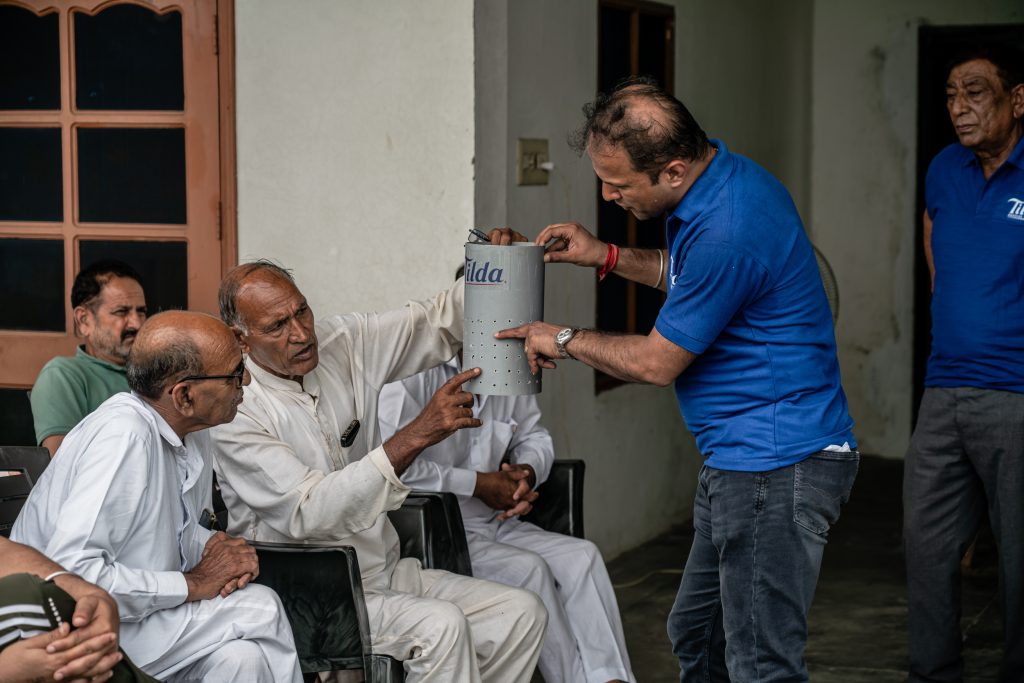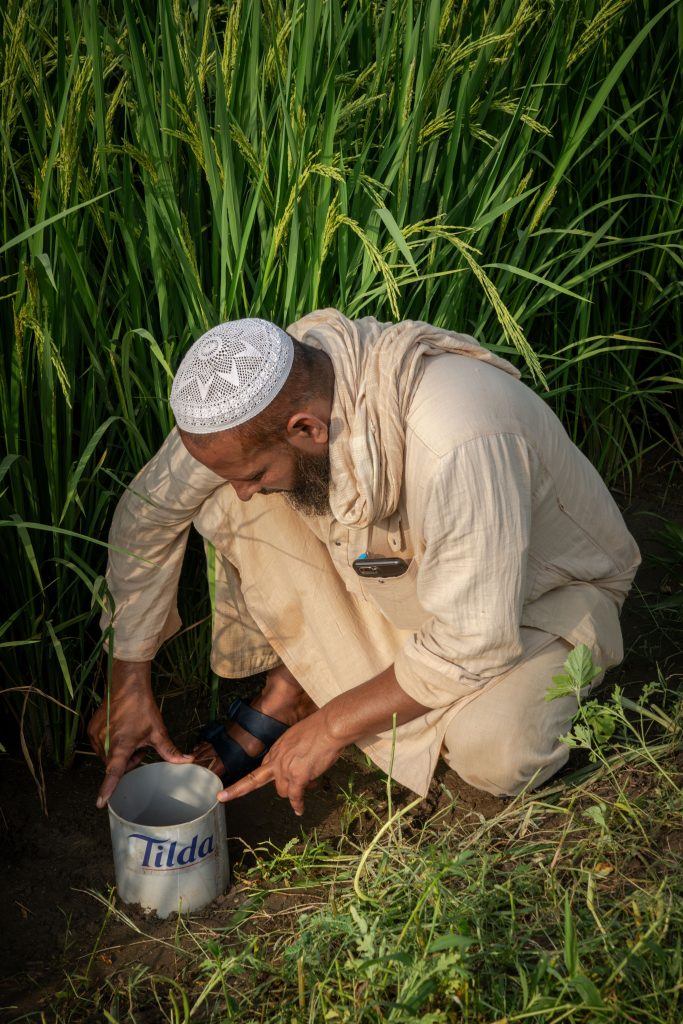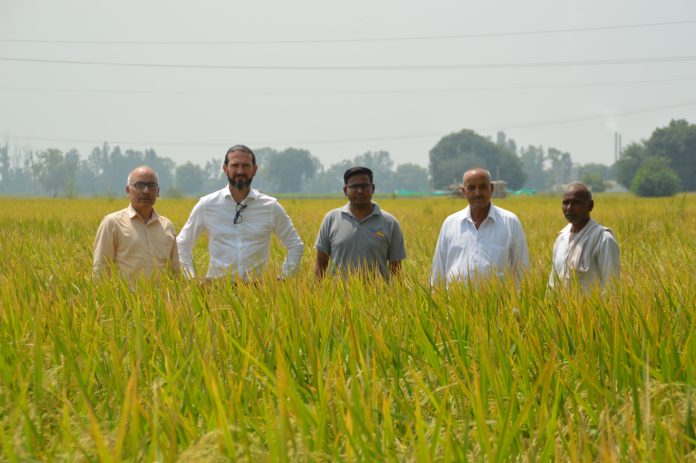Eamonn Duff spoke to Jean-Philippe Laborde about his five-year journey transforming Tilda into the UK’s number one, sustainability-driven, premium rice brand
In an industry where sustainability is no longer an option, Tilda has taken centre stage with a groundbreaking initiative that is reinventing the way the world grows rice.
As a staple food for more than half the world’s population, the humble grain is having an extreme impact on global ecosystems, with traditional methods of cultivation contributing significantly to climate change.
Under Jean-Philippe Laborde’s leadership, however, Tilda is reshaping the future of rice farming through a pioneering growing technique and broader set of environmental initiatives which in 2023 earned the brand a B Corp certification – the first rice company in the UK to do so.
“We were the challenger for quite a while, and the ambition was to step up and change the game by being innovative, and also very transparent about our sustainability strategy,” said Laborde. “Five years on, we’ve continued to grow the business across all the different areas. Now, we are officially the market leader in the rice category, which is no small feat and a matter of great pride.”
Laborde, a food industry veteran with over 25 years’ experience (pictured below), spent eight years in New Delhi leading Ebro Foods’ India division, the world’s largest rice producer, before becoming Tilda’s Managing Director in early 2020. He took on the role after Ebro Foods acquired Tilda in late 2019, but as he explained, he barely had time to unpack his suitcase in England before the Covid pandemic hit. “There have been better situations in which to start leading a company,” he reflected. “It was quite a bumpy road…in terms of inflation, global supply chain disruption and so many other aspects. But on the positive side, it was also a way to prove how resilient we can be.”

The grain of change
For more than 50 years, the Tilda name has stood as a symbol of premium-quality rice, enjoyed by families around the globe. Its commitment to sustainability began in the early eighties with the pioneering introduction of certified Basmati seed. As the climate crisis has deepened, the company has boldly embraced its role as an industry leader. Today, its approach has evolved beyond simply maintaining quality – it is now driven by a radical rethinking of the entire supply chain, prioritising the planet at every turn. At the heart of this transformation lies a resolute dedication to reducing the environmental footprint of rice production through science-based, evidence-led solutions.
Traditional rice farming can be resource-intensive, contributing to water scarcity, methane emissions, and soil degradation. Tilda’s state-of-the-art practices aim to tackle these challenges head-on, setting new standards for how crops can be grown and sourced responsibly. One of those standout initiatives is the Alternate Wet and Dry (AWD) irrigation technique, developed by the International Rice Research Institute.
Back in 2021, Tilda initiated a pilot AWD programme with a small group of basmati farmers in northern India. Building on the success of that trial, the project was expanded in 2023 to include 1,270 growers. Despite some initial caution, these farmers adopted the AWD method, which uses a simple perforated pipe to monitor soil moisture and determine when to irrigate.

“Rice is a thirsty plant that uses something like 3,000 to 5,000 litres of water per kilogram in flooded conditions,” said Laborde. “When you grow rice [this way], it releases large amounts of methane. By contrast, when you use the AWD technique, it allows the field to dry out between floods.”
Laborde explained that in a traditional, continuously flooded rice production system, farmers usually conduct 25 flooding cycles per season. Yet those who collaborated with Tilda to trial the AWD process have achieved at least five fewer flooding cycles. “This reduces methane emissions by an average of 45 percent,” he said, adding: “Through AWD, we’re proving that it is possible to produce rice in a way that is not only more sustainable but also beneficial for farmers, who are seeing both cost savings and improved yields as a result of using this method.” Aside from reducing methane emissions, AWD can cut water consumption by up to 30 percent, a critical shift in regions where, increasingly, water is a scarce and valuable resource. Laborde said: “Through this important work, we believe we are showing not only what can be achieved in northern India, but also across the global rice industry.”

Helping nature takes its course
Tilda recognises that sustainability starts from the ground up – literally. Beyond the AWD project, the company provides broader farm advisory services and support to a total of 2,500 farmers.
This assistance includes the use of Integrated Pest Management (IPM), an approach that shifts from a mainly pesticide-based system to make greater use of alternative forms of pest control.
IPM reduces the environmental impact of pest control practices in a way that also supports biodiversity. For example, Tilda offers its agricultural partners free pheromone traps to attract unwanted insect pests. This helps to determine pest levels in fields and allows for better targeted – and reduced – use of crop protection products.
“We provided straw bundles that became a natural habitat for spiders,” said Laborde, who added: “Spiders of course are predators for insects and serve as a natural form of ‘biological’ pest control.” He went to on to reveal that over a three-year timeframe, official data showed growers were able to consistently reduce pesticide use by 80 percent. “Sometimes, we forget that nature is a very powerful thing. The farmers could see what was happening in their fields. By promoting biodiversity and implementing something very simple…we were creating healthier plants and a healthier environment.”

Expanding sustainability and transparency across the supply chain
Tilda’s eco-friendly efforts extend well beyond the farm. The company has committed to reducing its overall environmental impact by focusing on manufacturing investment, packaging innovation, and responsible sourcing. Since 2020, its UK sites have been powered entirely by renewable electricity, contributing to a 36 percent reduction in carbon dioxide equivalent (CO2e) emissions per kilogram of rice produced. In addition, the company is taking steps to reduce its dependence on plastic packaging through an ambitious plan to ensure all dry rice packaging is 100 percent recyclable by 2027. Laborde acknowledges, however, that hurdles remain with other non-recyclable packaging such as Tilda’s popular ready-to-heat pouches.
“For four years, we’ve been working closely with different packaging suppliers, but we haven’t found, right now, a recyclable structure that also delivers a safe product…when cooking the rice.”
He added: “For us at Tilda, the core of our sustainability programme – and let’s say the motor within the company – centres on complete transparency. I never want to over-commit or mislead consumers. If we do something, we need to prove, beyond doubt, that it is right. Laborde also emphasised that when Tilda does achieve future technological and sustainability breakthroughs, it is fully committed to sharing those advancements.
“We’d be very vocal about it and invite anyone in the industry to use it as well,” he said, adding: “This isn’t just about Tilda and our consumers. it’s about what’s good for the planet. There is a much bigger picture, and we cannot get there alone. It’s impossible.”
Tilda publishes an annual impact report that transparently tracks its sustainability progress, including emissions reduction, improved farming practices, and community support.





